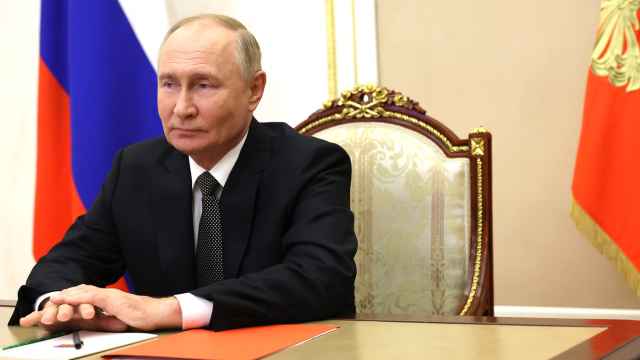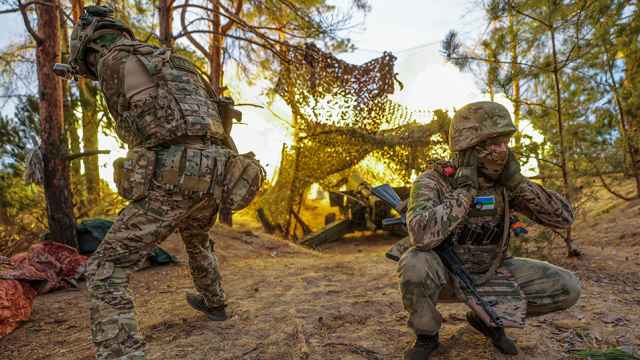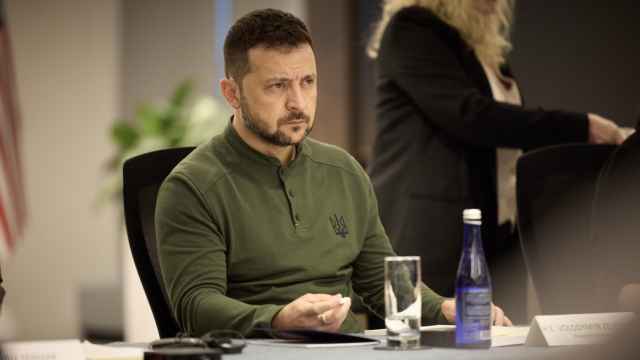Russian military reservists attempting to travel to neighboring Georgia to escape Moscow’s “partial” mobilization will be handed their draft summons at the border, regional authorities in southern Russia said Tuesday.
“Citizens of the Russian Federation who are wishing to leave the country but are subject to enlistment will receive summons at the border with Georgia,” the state-run TASS news agency quoted the head of the republic of North Ossetia’s press service as saying Tuesday.
More than 115,000 Russians are believed to have fled into Georgia since Sept. 21, when Russian President Vladimir Putin announced a “partial” mobilization in an attempt to aid Russia’s faltering war effort in Ukraine.
Satellite images by Maxar Technologies showed 16-kilometer lines amassed at the Verkhniy Lars border crossing between North Ossetia and Georgia.
Moscow officials refused to elaborate on the situation at Russia’s borders Tuesday.
"On the whole, everything is happening in this area in strict accordance with the legislation of Russia," Peskov said.
In separate comments, the Russian Defense Ministry said that it would not seek extradition of Russians who have fled the country to avoid the mobilization.
"The Russian Defense Ministry has not sent any request to the authorities of Kazakhstan, Georgia, or any other country for the alleged forced return to Russian soil of Russian citizens, and it is not planning to do so," the ministry said in a statement.
On Monday, Russia’s Federal Security Service (FSB) confirmed to the media that it sent an armored personnel carrier to the Russian-Georgian border to monitor the situation and prevent “reservists” from illegally leaving Russia.
Photos posted on social media showed a group of uniformed men sitting atop the armored vehicle as rows of stationary traffic lined the major highway.
Some 260,000 men are estimated to have fled the country in the days since Putin announced the mobilization, according to figures cited by the independent Meduza news website.
Tuesday’s announcement by North Ossetia follows days of speculation that Russia could close its borders to prevent potential draftees from leaving the country.
The Kremlin has denied it has plans to do so.
A Message from The Moscow Times:
Dear readers,
We are facing unprecedented challenges. Russia's Prosecutor General's Office has designated The Moscow Times as an "undesirable" organization, criminalizing our work and putting our staff at risk of prosecution. This follows our earlier unjust labeling as a "foreign agent."
These actions are direct attempts to silence independent journalism in Russia. The authorities claim our work "discredits the decisions of the Russian leadership." We see things differently: we strive to provide accurate, unbiased reporting on Russia.
We, the journalists of The Moscow Times, refuse to be silenced. But to continue our work, we need your help.
Your support, no matter how small, makes a world of difference. If you can, please support us monthly starting from just $2. It's quick to set up, and every contribution makes a significant impact.
By supporting The Moscow Times, you're defending open, independent journalism in the face of repression. Thank you for standing with us.
Remind me later.






